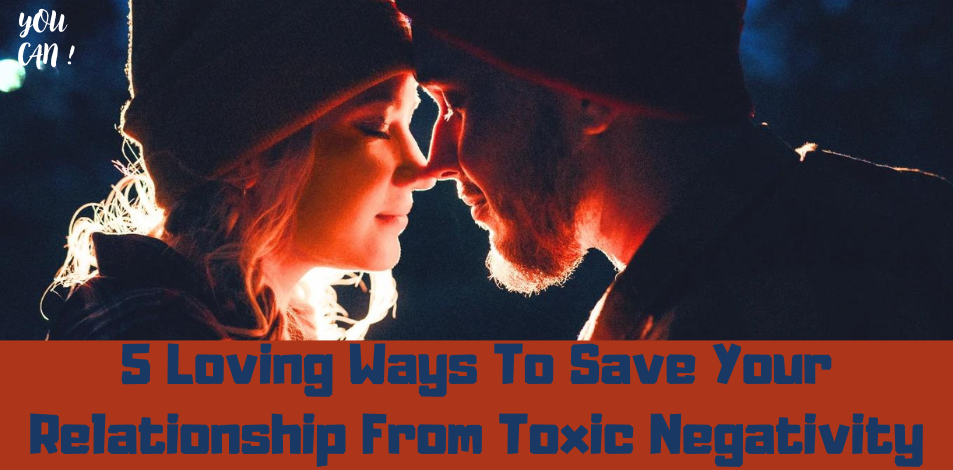
There are a lot of negative things happening in our society today. It almost feels like a Pandora’s box has been opened somewhere, and there is unfettered freedom to unleash a barrage of angry, hurtful, unfiltered words and behavior.
Many may want to blame the media, politicians, or some kind of cultural shift. But for us, what is reflected in society is reflected in our psyche. What appears at the macro level is an expression of the micro level.
We can only be able to have a negativity-free society if we can first be able to have a negativity-free relationship at home. As a bonus, learning to be less negative can save a suffering relationship.
In our most intimate relationships, we begin by expressing unconditional love: intermittent behaviors, letters, text messages, and phone calls declaring our pledge, feeling positive happiness with ourselves and the world. However, when we fall in love, we are not able to maintain this level of perfect love.
After a while, the euphoria of love begins to fade. We may begin to notice that Bob is a bit careful with money or that Joan is a bit stubborn. Before long, Bob always became a curmudgeon and Joan always had to get her way.
We call this stage – which naturally follows romance – the power struggle. As in our culture, when couples are in a power struggle, all the blame falls on the other: “It’s your fault!” (Conversely, “It’s never my fault!”) We try to change, force, and/or threaten them to become “more like me.”
Related: 5 Things You Don’t Realize You Do Because You’re Addicted To Toxic Relationships
What is negativity?
What do we mean by negativity? Negativity is any thought, word, or action that tells your partner, “You’re not okay when you think what you think or act the way you act.”
It is a “quenching” of the underlying being. In essence, you are rejecting your partner’s “otherness.”
Sometimes we feel the need to deny our partners when they do or say something that makes us uncomfortable. Usually, they are just themselves. But from our perspective, they threaten the image we have of them, or they fail to meet our unexpressed needs.
Negativity usually first appears in a love relationship in the form of denial: “I can’t believe you did that!” The fact that your partner is a separate individual with different wants and needs than yours is beginning to dawn on you, and you feel threatened. Your denial is a desperate ploy to cling to your delusions.
When your partner keeps turning away from the picture on display, the tendency is to bring out the big arms, one by one.
Your arsenal includes shame (“How do you think this feels?!”), blaming (“I didn’t talk to you because you were too late!”), criticism (“You’re so insensitive!”), and intrusion (“If you would just listen to me, I would tell you What you should do.”), and finally, the blanket condemnation (“You never listen to me!”).
It’s no wonder our partners feel depressed, stay up late at work, drink too much, or don’t want to make love. Being with us is not a safe place to be. They are cut into small pieces, dissected, and rejected.
This is a form of emotional annihilation. No person – nor any relationship – can be healthy in such a toxic environment. To get the love we want and have a healthy relationship, we need to get rid of negativity in all its forms and learn how to communicate better.
One of the questions we often ask is whether all negativity is bad, and our definitive answer is: “Yes!”
Negative words cause emotional damage. You can call it sarcasm or humor, or whatever excuse you make (“I was just kidding!”), but it is emotional abuse. If you find yourself saying, “Can’t you take a joke?” or “I was just kidding” or “I’m just offering constructive criticism,” you’re probably hurting your relationship.
Criticism may not always take the form of words. Body language can communicate a lot. This could be a touch, a glare, an eye roll, or raising hands in the air.
Whatever the case, the message is that one person is superior and the other is inferior. One person is on top, one is on the bottom. You cannot have a healthy relationship with this dynamic.
There’s another good reason why negativity is bad: The negativity we express toward our partners (or relatives, friends, and even strangers) comes back as a rebound and affects us, too.
This is because our subconscious mind does not know whether the negativity is directed outward or inward. This theory has been supported by studies that have shown that when someone yells at another person, the person being yelled at produces more of the stress hormone cortisol.
This is to be expected. But perhaps more interestingly, the same increase in cortisol appears in an angry person as well.
One could say that any negativity we direct toward others is a form of self-abuse.




